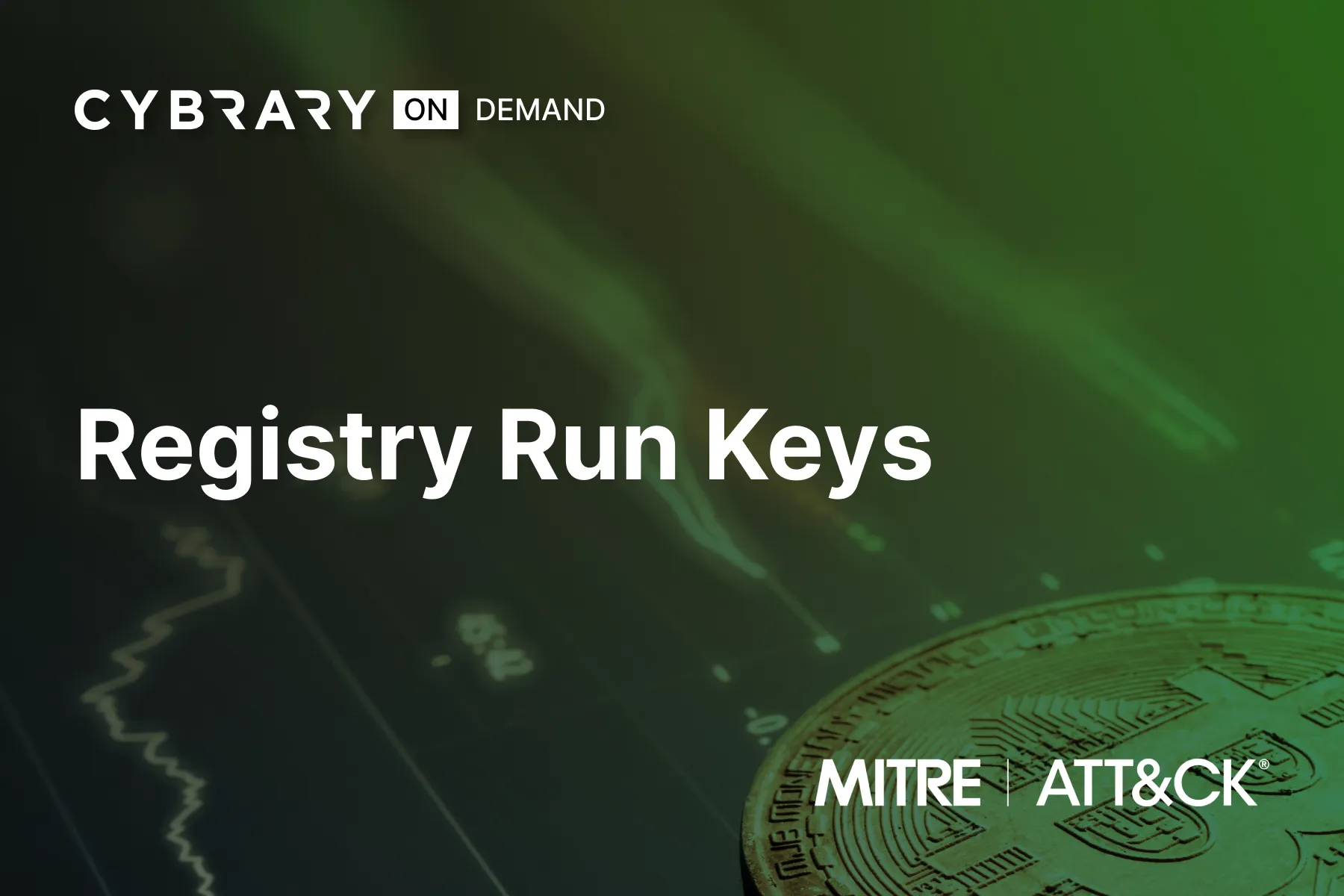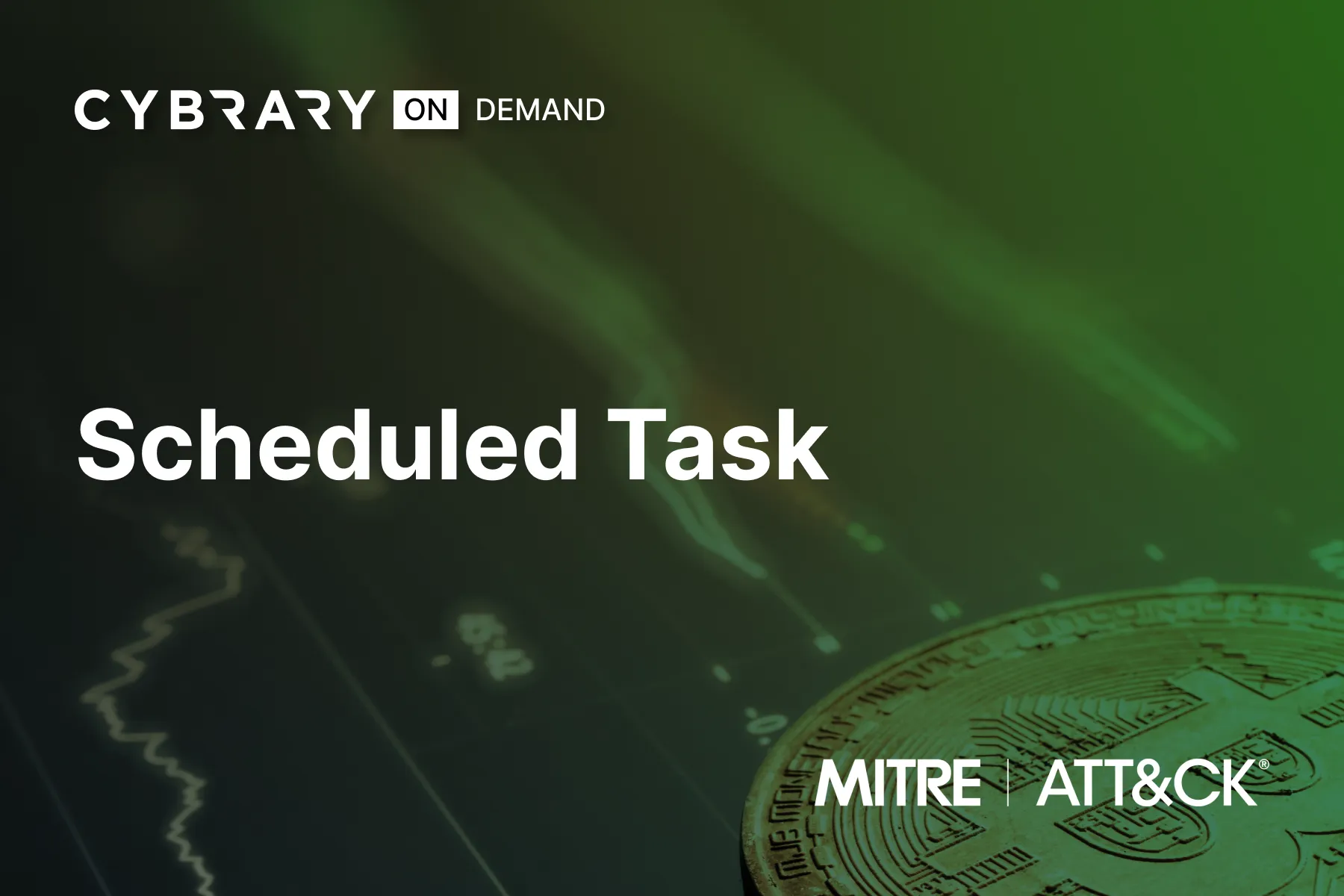Exfiltration and Extortion
Threat actors will use stolen data exfiltrated from victim systems to extort organizations. Once they gain a foothold, they delete critical system files and threaten to release the data or disrupt operations if the victims do not pay up. Understanding these techniques is vital to defending your organization from such attacks.

Campaign Outline
Threat Actor Campaigns are comprised of multiple MITRE ATT&CK aligned courses. Click on a course below to learn more.

Registry Run Keys
Many organizations do not monitor for additions to the Windows Registry that could be used to trigger autostart execution on system boot or logon. This allows adversaries to launch programs that run at higher privileges and paves the way for more damaging activity. Learn how to detect and mitigate this activity to secure your network.
Overview
Many organizations do not monitor for additions to the Windows Registry that could be used to trigger autostart execution on system boot or logon. This allows adversaries to launch programs that run at higher privileges and paves the way for more damaging activity. Learn how to detect and mitigate this activity to secure your network.

Scheduled Task
Some organizations do not configure their operating systems and account management to properly protect the use of task scheduling functionality. As a result, adversaries can abuse this capability to execute malicious code on a victim’s system. Get hands-on practice detecting this technique so you can protect your organization.
Overview
Some organizations do not configure their operating systems and account management to properly protect the use of task scheduling functionality. As a result, adversaries can abuse this capability to execute malicious code on a victim’s system. Get hands-on practice detecting this technique so you can protect your organization.

User Discovery
Once on a victim's system, adversaries will perform user discovery to determine information, such as the primary user’s identity and capabilities. They may seek out users with access to remote systems so they can cast their net wider. Discover the attacker instead of the other way around with this dynamic, lab-based course!
Overview
Once on a victim's system, adversaries will perform user discovery to determine information, such as the primary user’s identity and capabilities. They may seek out users with access to remote systems so they can cast their net wider. Discover the attacker instead of the other way around with this dynamic, lab-based course!



